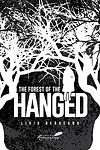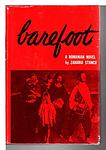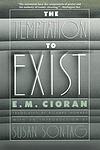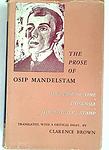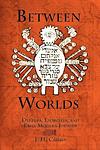The Greatest Romanian, Multiple Books of All Time
Click to learn how this list is calculated.
This list represents a comprehensive and trusted collection of the greatest books. Developed through a specialized algorithm, it brings together 300 'best of' book lists to form a definitive guide to the world's most acclaimed books. For those interested in how these books are chosen, additional details can be found on the rankings page.
Genres
Countries
Date Range
Reading Statistics
Click the button below to see how many of these books you've read!
Download
If you're interested in downloading this list as a CSV file for use in a spreadsheet application, you can easily do so by clicking the button below. Please note that to ensure a manageable file size and faster download, the CSV will include details for only the first 500 books.
Download-
1. Tractatus Theologico Politicus by Baruch de Spinoza
"Tractatus Theologico-Politicus" is a seminal work that explores the relationship between religion, politics, and philosophy. The author argues for the separation of theology and philosophy, asserting that the purpose of the state is to promote peace and security through rational governance, free from religious influence. He critiques the role of organized religion in politics and defends the freedom of thought and expression, advocating for a secular, democratic political order. The work also delves into biblical criticism, challenging traditional interpretations and suggesting that the Bible should be analyzed through a historical and contextual lens.
-
2. On the Heights of Despair by Emil Cioran
"On the Heights of Despair" is a philosophical exploration of the human condition, particularly focusing on themes such as existentialism, despair, and nihilism. The author delves into the idea of life as suffering and the inevitability of death, offering a bleak yet thought-provoking perspective on existence. The work is a profound contemplation of life's absurdity, loneliness, and the struggle to find meaning, presenting an introspective journey into the depths of despair and the heights of existential thought.
-
3. Rhinoceros and Other Plays by Eugène Ionesco
"Rhinoceros and Other Plays" is a collection of three absurdist dramas that explore themes of conformity, culture, and mass movements. The titular play depicts a small French town where the inhabitants inexplicably transform into rhinoceroses, symbolizing the rise of fascism and the dangers of conformity. The other two plays, "The Leader" and "The Future is in Eggs," continue to explore these themes through a satirical and often surreal lens, challenging societal norms and the nature of reality itself.
-
4. Despair by Vladimir Nabokov
The novel revolves around a man who encounters his doppelgänger and becomes obsessed with the striking resemblance between them. This obsession leads him to concoct an elaborate scheme involving identity exchange and insurance fraud. As the protagonist meticulously plans what he believes to be the perfect crime, his narrative becomes increasingly unreliable, revealing his descent into madness. The story unfolds through a complex structure of layered storytelling, blending reality with the protagonist's delusions, and culminates in a darkly ironic twist that challenges the reader's perception of truth and fiction.
-
5. Satyricon by Petronius
The book in question is a satirical Roman work that provides a vivid, episodic portrayal of the decadent society during the reign of Nero. It follows the misadventures of the narrator and his companions as they navigate a world of excess, corruption, and hedonism. Through a series of events ranging from banquets to shipwrecks, the narrative offers a critique of the moral decay of Roman society, using humor, irony, and the perspective of characters from various social strata. The fragmented nature of the surviving text adds to its enigmatic and chaotic depiction of the period's social mores.
-
6. Novel With Cocaine by M. Ageyev
The book in question is a psychological novel set in the tumultuous period of the Russian Revolution. It follows the life of a disaffected young man who, after being expelled from school, descends into a hedonistic lifestyle in Moscow's seedy underbelly. As he indulges in romantic pursuits and the eponymous drug, his intellectual arrogance and detachment from society grow. The narrative offers a dark and introspective exploration of nihilism, addiction, and the loss of innocence, ultimately painting a portrait of a protagonist caught between the demise of old-world Russia and the rise of the Soviet Union, all while grappling with his own moral decay.
-
7. Forest of the Hanged by Liviu Rebreanu
"Forest of the Hanged" is a gripping novel set during World War I, focusing on a Romanian officer serving in the Austro-Hungarian army who is forced to confront his own morality and identity. After his brother is executed for treason, the protagonist struggles with his loyalty to the army and his inherent connection to his native land, leading to a profound spiritual crisis. The narrative explores themes of nationalism, duty, conscience, and the devastating psychological impact of war.
-
8. Dawn by Elie Wiesel
"Dawn" is a poignant novel that explores the moral complexities of the aftermath of the Holocaust through the eyes of a young Holocaust survivor turned freedom fighter. He is tasked with the execution of a British officer in retribution for the British execution of a Jewish prisoner. As he awaits the dawn, the time set for the execution, he grapples with the morality of his actions, the value of life, and the haunting memories of his past. The narrative delves deep into the psychological and emotional turmoil of its protagonist, offering a profound exploration of guilt, responsibility, and the cost of violence.
-
9. Barefoot by Zaharia Stancu
"Barefoot" is a powerful novel set in Romania during World War II, depicting the hardships of a young shepherd named Darie who is forced into labor by the Soviet regime. The narrative follows his struggles, survival, and his journey through war-torn Eastern Europe. The protagonist's experiences are a metaphor for the suffering and resilience of the Romanian people during this tumultuous period in history.
-
10. Attis And Other Poems by Catullus
"Attis and Other Poems" is a collection of lyrical works that delve into themes of love, desire, and personal anguish. The poems are characterized by their emotional intensity and vivid imagery, often reflecting the poet's own tumultuous love affairs and inner turmoil. The titular poem, "Attis," stands out with its mythological narrative and exploration of themes such as identity and transformation. Throughout the collection, the poet's mastery of language and form is evident, as he skillfully weaves together personal experiences with broader reflections on human nature and the complexities of the human heart.
-
11. Memories And Commentaries by Igor Stravinsky
"Memories and Commentaries" is a reflective work that offers a window into the mind of one of the 20th century's most influential composers. Through a series of personal recollections and insights, the book delves into the author's artistic journey, his relationships with other prominent figures in the world of music and art, and his philosophical musings on the nature of creativity. The narrative weaves together anecdotes from the composer's life, discussions on his own compositions and musical techniques, as well as his opinions on the works of his contemporaries, providing readers with an intimate portrait of a man whose legacy continues to shape the landscape of classical music.
-
12. Images And Symbols by Mircea Eliade
The book is a profound exploration of the symbolism inherent in religious images, myths, and rituals. It delves into the various ways in which symbols function within different cultures, examining their role in expressing the metaphysical dimension of reality. The author argues that symbols are integral to human experience, allowing individuals to transcend the ordinary world and connect with a deeper, universal level of consciousness. Through an analysis of diverse religious traditions and artistic expressions, the work reveals how symbols serve as a bridge between the sacred and the profane, offering insights into the human quest for meaning and the spiritual dimension of life.
-
13. The Temptation To Exist by Emil Cioran
"The Temptation to Exist" is a philosophical work that explores the human condition and the inherent struggles of existence. The author delves into themes of nihilism, despair, and the search for meaning in a world filled with suffering. Through a series of thought-provoking essays, Cioran challenges traditional beliefs, questions the nature of reality, and reflects on the complexities of human existence, ultimately offering a bleak yet profound perspective on the human experience.
-
14. Six Studies In Communism by Arthur Koestler, Richard Crossman
This book is a compilation of six essays that delve into the ideological and practical facets of communism. Each study examines different aspects of communist theory and practice, from its origins and evolution to its implementation in various countries. The authors critically analyze the successes and failures of communist systems, exploring the impact on societies that have adopted these principles. The essays also consider the psychological and sociological effects of living under communist regimes, providing a multifaceted perspective on one of the most influential political ideologies of the 20th century.
-
15. The Rattle Bag by Seamus Heaney, Ted Hughes
This anthology is a diverse and eclectic collection of poetry, curated with the intention of captivating readers with its variety and depth. It eschews traditional chronological or thematic organization, instead opting for an alphabetical arrangement by title, which encourages serendipitous discovery and juxtaposes poems in unexpected ways. The editors, both acclaimed poets themselves, have selected works that span centuries and continents, including both well-loved classics and lesser-known gems. The collection is designed to appeal to a wide audience, inviting readers to explore the rich landscape of poetry in a fresh and engaging manner.
-
16. The Fourth Prose by Osip Mandelshtam
"The Fourth Prose" is a collection of autobiographical sketches and essays that delve into the author's reflections on literature, culture, and his own experiences. Through a series of lyrical and philosophical musings, the work explores the nature of artistic creation, the role of the poet in society, and the oppressive political climate of the author's time. The prose pieces are marked by their rich language and imagery, as well as their deep engagement with the European literary tradition, all while offering a poignant critique of the totalitarian regime under which the author lived, ultimately serving as a testament to the enduring power of the human spirit and the written word.
-
17. The Noise Of Time by Osip Mandelshtam
The book in question is a profound reflection on the life and work of a Russian poet navigating the treacherous waters of Soviet politics under Stalin's regime. It delves into the themes of art, power, and the struggle for creative freedom in an oppressive state. Through a series of lyrical meditations, the poet grapples with the compromises and silences imposed by totalitarianism, while seeking to preserve the integrity of his voice and vision. The narrative captures the tension between the individual's inner world and the crushing weight of external forces, offering a poignant exploration of the resilience of the human spirit in the face of relentless noise and coercion.
-
18. Six Centuries Of Verse by Seamus Heaney,Ted Hughes
This anthology is a comprehensive collection that spans six centuries of poetry, offering readers a rich tapestry of poetic expression from the English literary tradition. Compiled by two of the most celebrated poets of the 20th century, the book serves as both a historical overview and a celebration of the art form, featuring works from the earliest English poets to contemporary voices. Through its carefully curated selection, the anthology highlights the evolution of poetic styles, themes, and the enduring power of poetry to capture the human experience in all its facets. It is an essential volume for both students and enthusiasts of poetry, providing a deep well of inspiration and a broad perspective on the development of English verse.
-
19. The Dybbuk by S. Ansky
The book is a seminal work in Yiddish literature and folklore, centering around the concept of a dybbuk—a malicious possessing spirit from Jewish mythology. The narrative follows the tragic tale of a young bride in a Polish shtetl who becomes possessed by the restless spirit of her dead lover, who had been wronged by his own father and her father's broken pledge. The possession leads to a dramatic exorcism and a series of events that explore themes of love, betrayal, and the clash between the mystical and the rational, as well as the boundaries of life and death. The story delves into the rich tapestry of Jewish mysticism, community, and tradition, reflecting the cultural and religious tensions of Eastern European Jews before the First World War.
-
20. Infortunios De Alonso Ramirez / The Misfortunes Of Alonso Ramirez by José F. Buscaglia-Salgado, Carlos de Siguenza y Gongora
The book chronicles the harrowing adventures of Alonso Ramírez, a Puerto Rican man who, after being forced into piracy, endures a series of calamitous events at sea and across various lands. Captured by pirates, he survives shipwrecks, enslavement, and numerous hardships before eventually making his way back to Spanish territory. His story, which is presented as a true account, blurs the lines between fact and fiction, offering a unique perspective on colonial life, maritime culture, and the struggles of individuals caught between different worlds during the late 17th century.
-
21. For My Legionaries by Corneliu Zelea Codreanu
The book is a manifesto and autobiographical account that details the creation and political ideology of the Iron Guard, a nationalist and anti-Semitic organization in Romania during the early 20th century. It combines personal experiences with ideological exposition, advocating for a nationalist revival, anti-communist and anti-Semitic policies, and a radical overhaul of Romanian society based on Christian values and extreme nationalism. The narrative also reflects the author's leadership role and his vision for a unified, spiritually cleansed Romania, emphasizing loyalty, discipline, and the sacrifice necessary to combat perceived corruption and foreign influence.
-
22. Domnisoara Christina. Sarpele by Mircea Eliade
The book is a haunting exploration of the supernatural, delving into the eerie and the uncanny through the story of a mysterious woman who haunts a Romanian family. With a narrative that weaves between the boundaries of the living and the dead, the book examines themes of love, obsession, and the cultural folklore of vampirism. The protagonist's encounter with the enigmatic Christina and the subsequent unraveling of reality challenge the reader to confront the power of ancient myths and the darkness that lies within the human psyche.
-
23. Dulce Ca Mierea E Glonțul Patriei by Petru Popescu
The book is a poignant exploration of life under a totalitarian regime, as experienced by a young boy growing up in post-World War II Romania. Through the protagonist's eyes, readers witness the oppressive atmosphere of a society where fear, indoctrination, and the omnipresence of the state disrupt the innocence of childhood. The narrative delves into themes of family, loyalty, and the struggle for personal identity against the backdrop of political propaganda and the harsh realities of a communist state. The title, which translates to "The Bullet of the Fatherland is Sweet as Honey," reflects the bitter irony of patriotic slogans clashing with the grim truths of the characters' lives.
-
24. Summulae De Dialectica by John Buridan, Gyula Klima
"Summulae De Dialectica" is a comprehensive exploration of medieval logic, focusing on the intricacies of philosophical reasoning and argumentation. The text delves into various forms of logical analysis and syllogistic structures, providing a detailed examination of the principles and applications of dialectical reasoning. It serves as a critical resource for understanding the evolution of logical methodologies during the medieval period, reflecting the intellectual rigor and analytical depth characteristic of scholastic philosophy. The work is pivotal for scholars interested in the history of logic, philosophy, and medieval studies.
-
25. De Anima by Aristotle
"De Anima" is a foundational philosophical treatise that explores the concept of the soul and its relation to the body. The work delves into the nature of life itself, categorizing different kinds of souls possessed by different kinds of living things, such as plants, animals, and humans. It discusses the faculties of the soul, including the nutritive, perceptive, and intellectual aspects, and investigates their functions and interactions. The treatise also examines issues of perception, cognition, and memory, arguing that the soul is the principle of life and the source of all vital functions, ultimately aiming to define the essence of life and the basis of all living activities.
Reading Statistics
Click the button below to see how many of these books you've read!
Download
If you're interested in downloading this list as a CSV file for use in a spreadsheet application, you can easily do so by clicking the button below. Please note that to ensure a manageable file size and faster download, the CSV will include details for only the first 500 books.
Download





